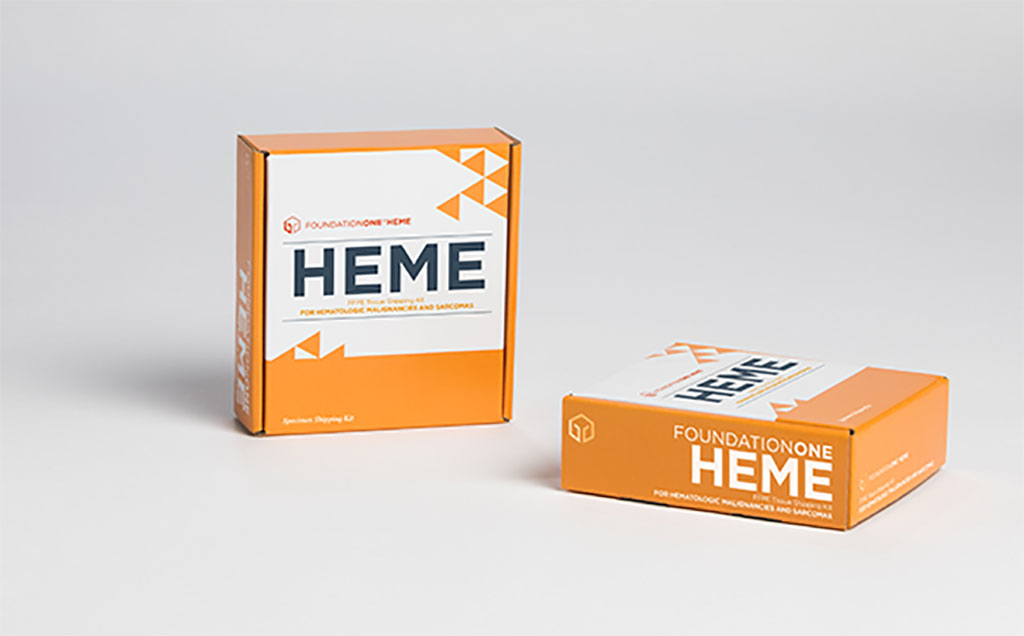Clinical Genomic Profiling Recommended for Bone Sarcoma Patients
Posted on 06 Jul 2022
The term “sarcoma” is shorthand for a complex family of more than 70 different diseases arising from connective tissue, independent of anatomic location, with each histology having unique natural history, biology, genetics, prognosis, and treatment.
The lack of effective targeted therapies for most sarcomas may be partially addressed by augmenting the limited available knowledge of the mutational landscape of mesenchymal tumors, which are much less studied, compared with epithelial and neural-derived cancers.

A large team of clinical scientists led by those at the Memorial Sloan Kettering Cancer Center (MSKCC, New York, NY, USA) retrospectively examined the genomic profiles of clinical sarcoma specimens analyzed by Foundation Medicine (Cambridge, MA, USA) during the period 2012 through 2018. The team performed next-generation sequencing using Foundation Medicine's FoundationOne Heme platform on nearly 7,500 adult and pediatric sarcoma patients representing 44 sarcoma subtypes.
The investigators reported that around one-third (31.7 %) of sarcoma patients in their study harbored at least one potentially actionable mutation including a significant proportion (2.6%) with kinase gene rearrangements; 3.9% have a tumor mutational burden ≥10 mut/Mb. Most of these biomarkers had level 3 status in MSK’s OncoKB, denoting that there was evidence they can predict whether patients with cancers other than sarcomas can benefit from certain drugs.
Across all sarcomas, nearly half of patients had alterations in the p53 pathway, which regulates genomic stability, with 47.8% harboring alterations in TP53, MDM2, and MDM4. Close to half of patients, 46.8% also harbored alterations in the Rb pathway that regulates the cell cycle and includes alterations in RB1, CDKN2A/B, CDK4/6, CCND1/2/3, and CCNE1. There were low frequencies of microsatellite instability (<0.3%) and a high degree of genome-wide loss of heterozygosity (15%) across sarcomas, which are not readily explained by homologous recombination deficiency (observed in 2.5% of cases). In a clinically annotated subset of 118 patients, they validated actionable genetic events as therapeutic targets.
Mrinal M. Gounder, MD, a medical oncologist and lead author of the study, said, “There are some diseases where the tumor mutation burden, for example, is extremely low, but even in that disease there are outliers. If you just looked at the histology alone and you didn't look at the genomics, you would miss that. If you did genomic sequencing and you incidentally found this one patient, maybe it's just one patient out of 50 patients, but if you can even change that one life with a drug that's already available, it's worth doing a test like this.”
The authors concluded that their findings suggest a growing clinical utility for genomic sequencing, especially in the management of rare cancers such as sarcomas. In light of potential cost and resource limitations, a framework for judicious use of NGS testing should be developed for sarcomas. The study was published on June 15, 2022 in the journal Nature Communications.
Related Links:
Memorial Sloan Kettering Cancer Center
Foundation Medicine
OncoKB














